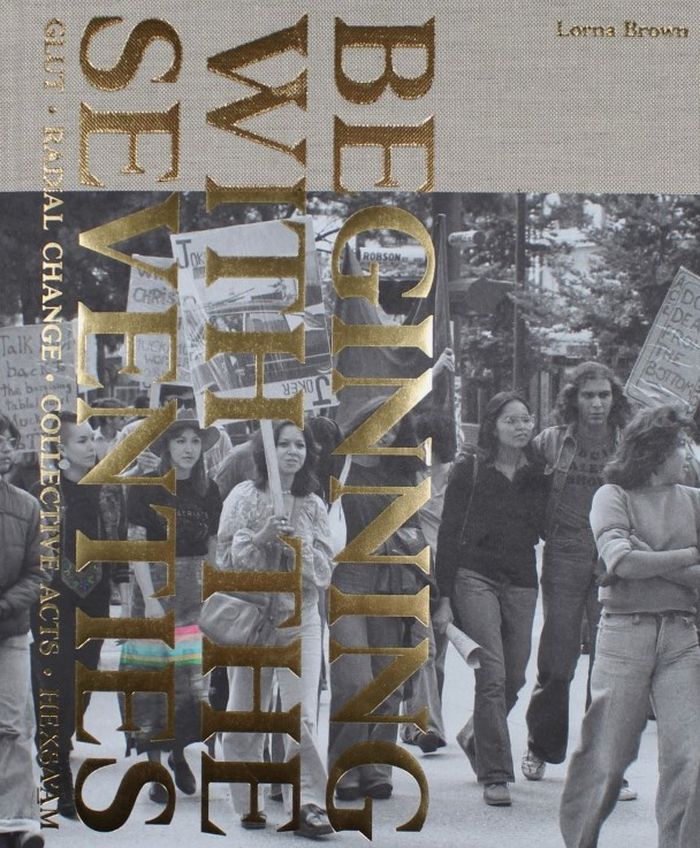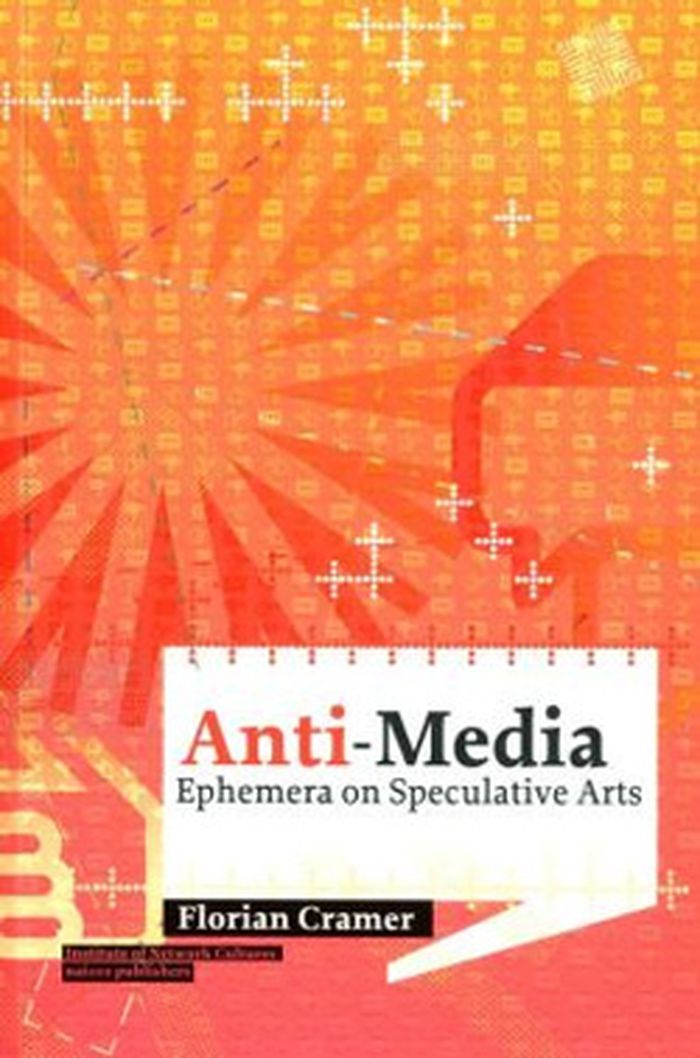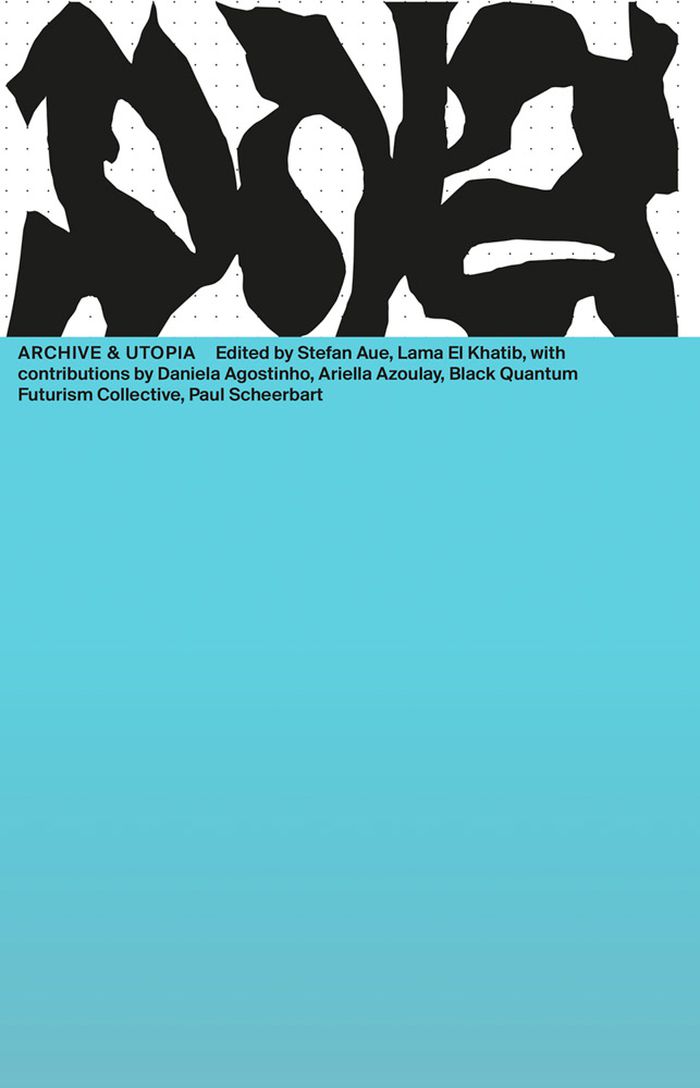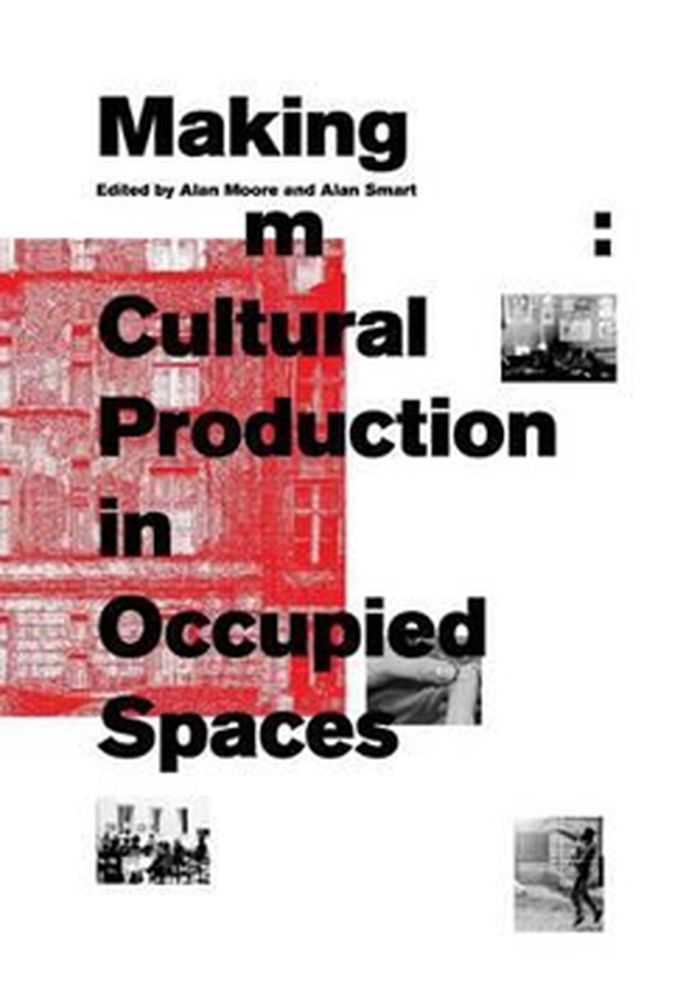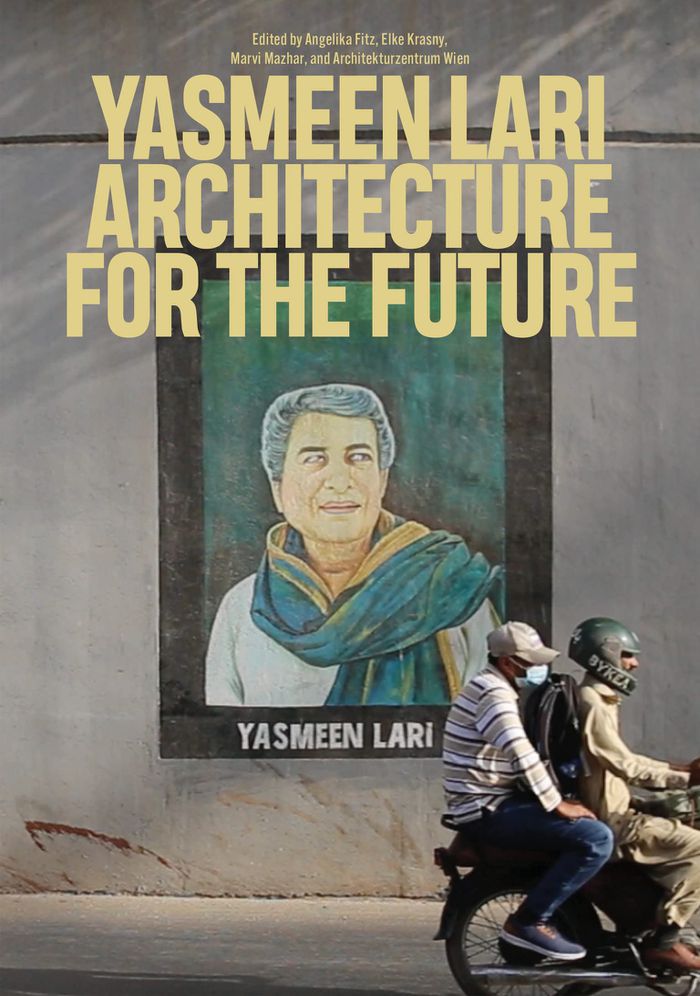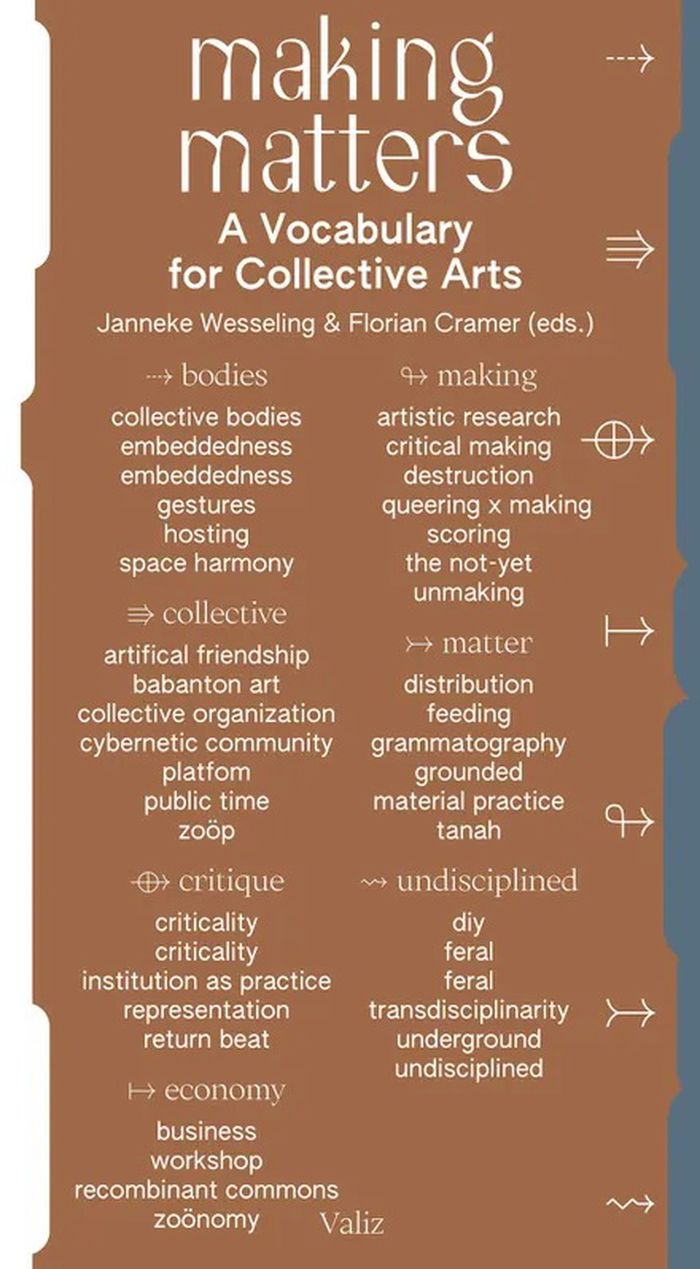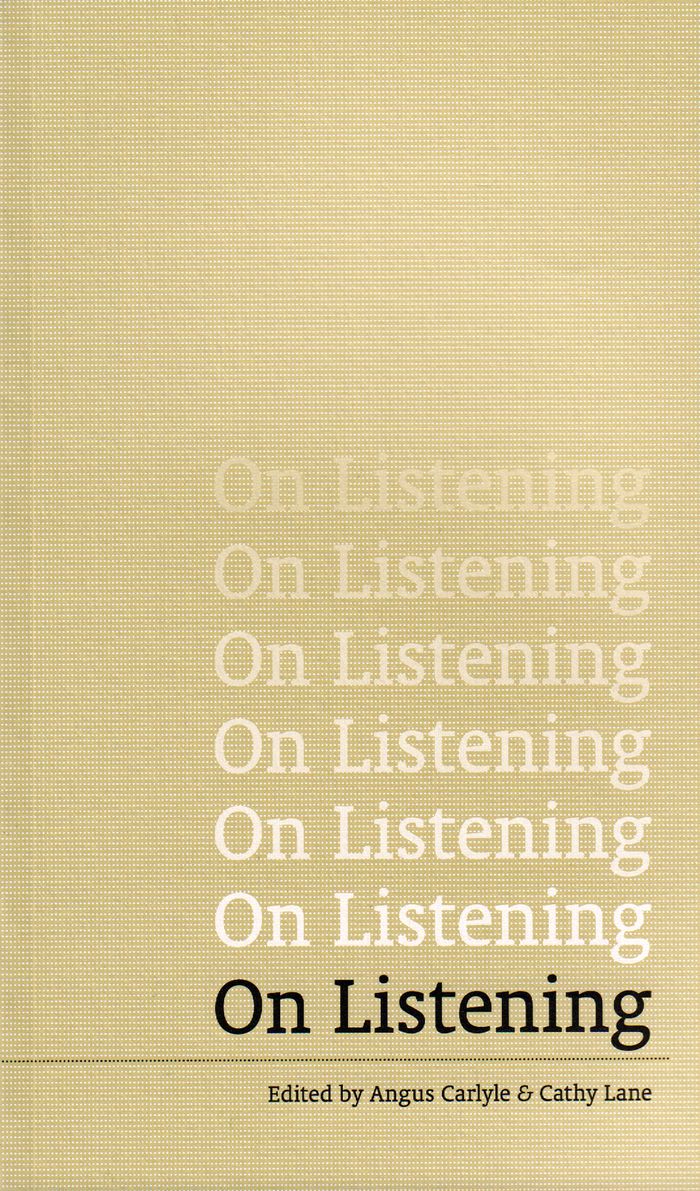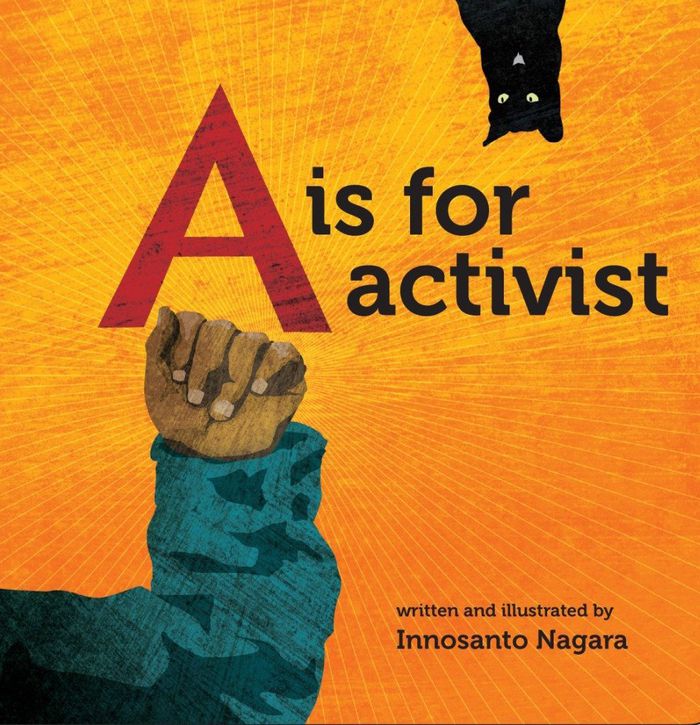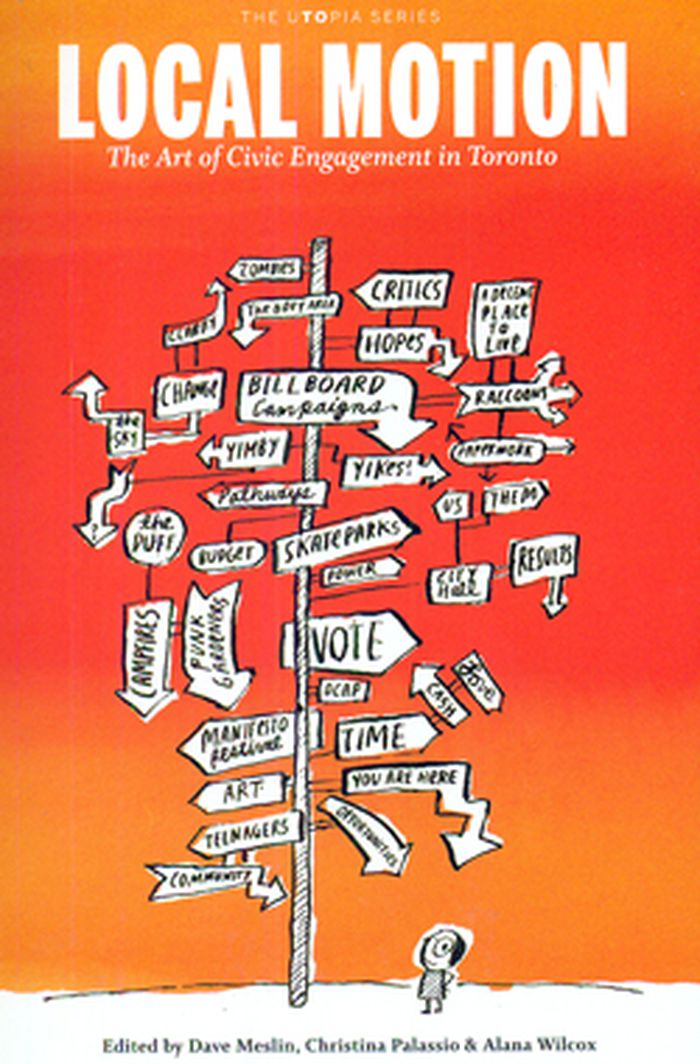Beginning with the Seventies
$55.00
(disponible en magasin)
Résumé:
Looking at the relationship between art, archives and activism, this publication begins with the 1970s, an era when social movements – feminism, environmentalism, LGBTQ2SIA+ rights, Indigenous rights, access to health services and housing – began to coalesce into models of self-organization that overlapped with the production of art and culture. Noting the resurgence of(...)
Beginning with the Seventies
Actions:
Prix:
$55.00
(disponible en magasin)
Résumé:
Looking at the relationship between art, archives and activism, this publication begins with the 1970s, an era when social movements – feminism, environmentalism, LGBTQ2SIA+ rights, Indigenous rights, access to health services and housing – began to coalesce into models of self-organization that overlapped with the production of art and culture. Noting the resurgence of art practice involved with social activism and an increasing interest in the 1970s from younger producers, the Belkin connected with diverse archives and activist networks to bring forward these histories, to commission new works of art and writing and to provide a space for discussion and debate. This book brings contemporary art practices into active dialogue with the past, interweaving archive with artwork, poetry, prose and critical investigation.
livres
Description:
xvi, 222 pages : map ; 19 cm
New York : Vintage Books, [1968]
Crisis at Columbia : report of the Fact-Finding Commission Appointed to Investigate the Disturbances at Columbia University in April and May, 1968.
Actions:
Exemplaires:
Description:
xvi, 222 pages : map ; 19 cm
livres
New York : Vintage Books, [1968]
$32.00
(disponible sur commande)
Résumé:
In Anti-Media, Dutch media theorist and author Florian Cramer looks at the interdependence between various subcultures and mainstream culture and/or industry--from literature written in the style of computer code and electroacoustic music using new technology to internet porn and anti-copyright activism.
Anti-media: ephemera on speculative arts
Actions:
Prix:
$32.00
(disponible sur commande)
Résumé:
In Anti-Media, Dutch media theorist and author Florian Cramer looks at the interdependence between various subcultures and mainstream culture and/or industry--from literature written in the style of computer code and electroacoustic music using new technology to internet porn and anti-copyright activism.
Théorie de l’art
Archives and Utopia
$21.00
(disponible sur commande)
Résumé:
Traditional archivism runs the risk of perpetuating hegemonic ways of thinking by anticipating what will be of importance in the future through the framework of present-day realities and power structures. These genre-busting ruminations gather new methods for designing views of potential worlds and forms of archival activism.
décembre 2022
Archives and Utopia
Actions:
Prix:
$21.00
(disponible sur commande)
Résumé:
Traditional archivism runs the risk of perpetuating hegemonic ways of thinking by anticipating what will be of importance in the future through the framework of present-day realities and power structures. These genre-busting ruminations gather new methods for designing views of potential worlds and forms of archival activism.
$39.95
(disponible en magasin)
Résumé:
Making Room is an anthology of texts on art, media and aesthetic practice in the context of squatting, occupation and urban-space activism. It includes pieces by activist researchers working between the academy and the movements they write about, as well as journalistic first-person narratives by squatters, original photography and interviews with artists, theorists and(...)
Making Room: Cultural Production in Occupied Spaces
Actions:
Prix:
$39.95
(disponible en magasin)
Résumé:
Making Room is an anthology of texts on art, media and aesthetic practice in the context of squatting, occupation and urban-space activism. It includes pieces by activist researchers working between the academy and the movements they write about, as well as journalistic first-person narratives by squatters, original photography and interviews with artists, theorists and activists involved in struggles over urban space and creative production in the city. Topics include brief histories of squatting in the UK, Germany and the Netherlands; the creation of Temporary Autonomous Zones; Puerto Rican occupations in New York; the influence of the Situationists on French squatting; and activism and camping at Documentas 10, 11 and 13. Throughout, cultural production appears in various forms ranging from conventional art practices to the organizing of communities and networks, to the production of media and setting up of information systems.
Théorie de l’urbanisme
$53.95
(disponible en magasin)
Résumé:
After more than three decades as a renowned global architect, Yasmeen Lari, the first woman to open her own architecture firm in Pakistan in 1964, developed Zero Carbon Architecture, which unites ecological and social justice. This volume, edited by Angelika Fitz, Elke Krasny, and Marvi Mazhar, presents Lari’s trajectory from exemplary modernist to zero carbon(...)
Architecture, monographies
mai 2023
Yasmeen Lari: Architecture for the future
Actions:
Prix:
$53.95
(disponible en magasin)
Résumé:
After more than three decades as a renowned global architect, Yasmeen Lari, the first woman to open her own architecture firm in Pakistan in 1964, developed Zero Carbon Architecture, which unites ecological and social justice. This volume, edited by Angelika Fitz, Elke Krasny, and Marvi Mazhar, presents Lari’s trajectory from exemplary modernist to zero carbon revolutionary, with a focus on her remarkable contributions to the global architectural movement to decarbonize and decolonize. Lari’s architectural thinking and activism have always gone beyond the quest for a singular built solution. Rather, she strategically plans systemic approaches and solutions, be it for housing, a heritage foundation, or zero-carbon shelters with communities at risk. Original essays from diverse international contributors contextualize Lari’s work; investigate architecture and the postimperial, postcolonial, and postpartition condition; and examine the intersections of architecture and human rights, climate change, decolonization, gender, care, activism, and vernacular innovation.
Architecture, monographies
$38.00
(disponible en magasin)
Résumé:
The world today faces overwhelming ecological and social problems and the concern for material existence on earth is more pressing than ever. This book spells out various roles that visual artists and designers play facing these issues. Collective action is necessary and inevitable. This approach often changes the artist’s identity and working habits: from individuality(...)
Making matters: A vocabulary for collective arts
Actions:
Prix:
$38.00
(disponible en magasin)
Résumé:
The world today faces overwhelming ecological and social problems and the concern for material existence on earth is more pressing than ever. This book spells out various roles that visual artists and designers play facing these issues. Collective action is necessary and inevitable. This approach often changes the artist’s identity and working habits: from individuality and autonomy to collectivity and collaboration, both locally and globally. These developments have given rise to new kinds of collective art and design practices: artists work together with non-artists, make products for their local environment and take on multiple identities, such as researcher, community activist, computer hacker or business consultant. This volume looks at art practices across all continents that do not conform to a Western concept of art nor to traditional distinctions between art, design, research and activism—where the boundaries between art, design, research and activism become blurred or are dissolved.
Théorie de l’art
On listening
$29.00
(disponible sur commande)
Résumé:
"On listening" is a unique collection of forty multi-disciplinary perspectives drawn from anthropology, bioacoustics, geography, literature, community activism, sociology, religion, philosophy, art history, conflict mediation and the sonic arts including music, ethnomusicology and field recording. These specially commissioned contributions explore the many ways in which(...)
On listening
Actions:
Prix:
$29.00
(disponible sur commande)
Résumé:
"On listening" is a unique collection of forty multi-disciplinary perspectives drawn from anthropology, bioacoustics, geography, literature, community activism, sociology, religion, philosophy, art history, conflict mediation and the sonic arts including music, ethnomusicology and field recording. These specially commissioned contributions explore the many ways in which skilled listening can mediate new relationships with our physical environment and the people and other species that we share it with.
Acoustique
A is for activist
$15.95
(disponible sur commande)
Résumé:
This ABC book is written and illustrated for the next generation of progressives: families who want their kids to grow up in a space that is unapologetic about activism, environmental justice, civil rights, LGBTQ rights, and everything else that activists believe in and fight for. This engaging book carries huge messages as it inspires hope for the future, and calls(...)
A is for activist
Actions:
Prix:
$15.95
(disponible sur commande)
Résumé:
This ABC book is written and illustrated for the next generation of progressives: families who want their kids to grow up in a space that is unapologetic about activism, environmental justice, civil rights, LGBTQ rights, and everything else that activists believe in and fight for. This engaging book carries huge messages as it inspires hope for the future, and calls children and parents to action.
Littérature jeunesse
$22.95
(disponible sur commande)
Résumé:
Local Motion presents an in-depth analysis of civic engagement in Canada’s largest city. Essays by politicians and senior journalists explain what makes one city, Toronto, tick and stall. They explore electoral reform, civic organizations, ethnicity and racism, the press gallery and grassroots activism, offering up ways in which the people who live there might help to(...)
Architecture du Canada
août 2010
Local motion: The art of civic engagement in Toronto
Actions:
Prix:
$22.95
(disponible sur commande)
Résumé:
Local Motion presents an in-depth analysis of civic engagement in Canada’s largest city. Essays by politicians and senior journalists explain what makes one city, Toronto, tick and stall. They explore electoral reform, civic organizations, ethnicity and racism, the press gallery and grassroots activism, offering up ways in which the people who live there might help to make their city a better, more humane one.
Architecture du Canada
